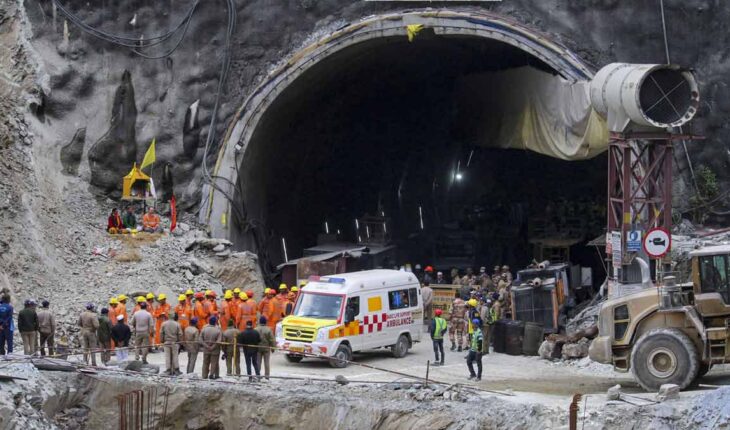The recent rescue of 41 workers trapped for 17 days in a collapsed tunnel in Silkyara, Uttarakhand, is nothing short of a testament to human resilience and the effectiveness of India’s National Disaster Management Authority. On the evening of November 28, after extensive and painstaking efforts, rescue personnel successfully evacuated the workers, marking the end of a harrowing ordeal. The rescue operation was remarkable not only for its successful outcome but also for the rapid mobilization of resources. Within a day of the tunnel collapse, officials managed to provide the trapped workers with essential supplies like oxygen and food. The subsequent deployment of an auger drill from Delhi and the meticulous efforts to navigate through the challenges posed by the unstable terrain underscore the dedication and expertise of the rescue teams. President Draupadi Murmu lauded the rescue as “one of the greatest” in history. While the praise is well-deserved, the incident also casts a spotlight on broader issues concerning worker safety and infrastructure development in India. This incident, along with the July tragedy on the Nagpur-Mumbai Samruddhi Expressway, where a crane collapse killed 20 workers, both involving Navayuga Engineering Company Ltd., raises serious questions about the safety standards in infrastructure projects. The government’s response should not only involve a thorough investigation into these incidents but also a broader reassessment of safety protocols and working conditions on such sites. Moreover, the Char Dham highway project, where this incident occurred, has been a subject of concern among experts who question the geological viability of the terrain for such extensive construction. The Silkyara tunnel rescue operation should serve as a wake-up call. It highlights the need for preemptive measures to ensure the safety of workers and future users of these infrastructures. Ensuring that such heroic rescue operations are not needed in the first place requires a commitment to safe working environments and adherence to geological and environmental wisdom in infrastructure development
Rescue operation shines light on deeper issues
Published Date: 02-12-2023 | 1:41 am




